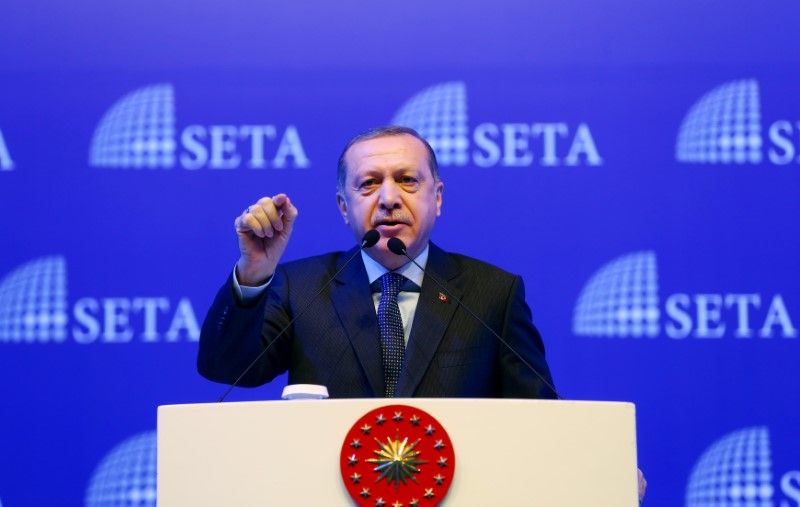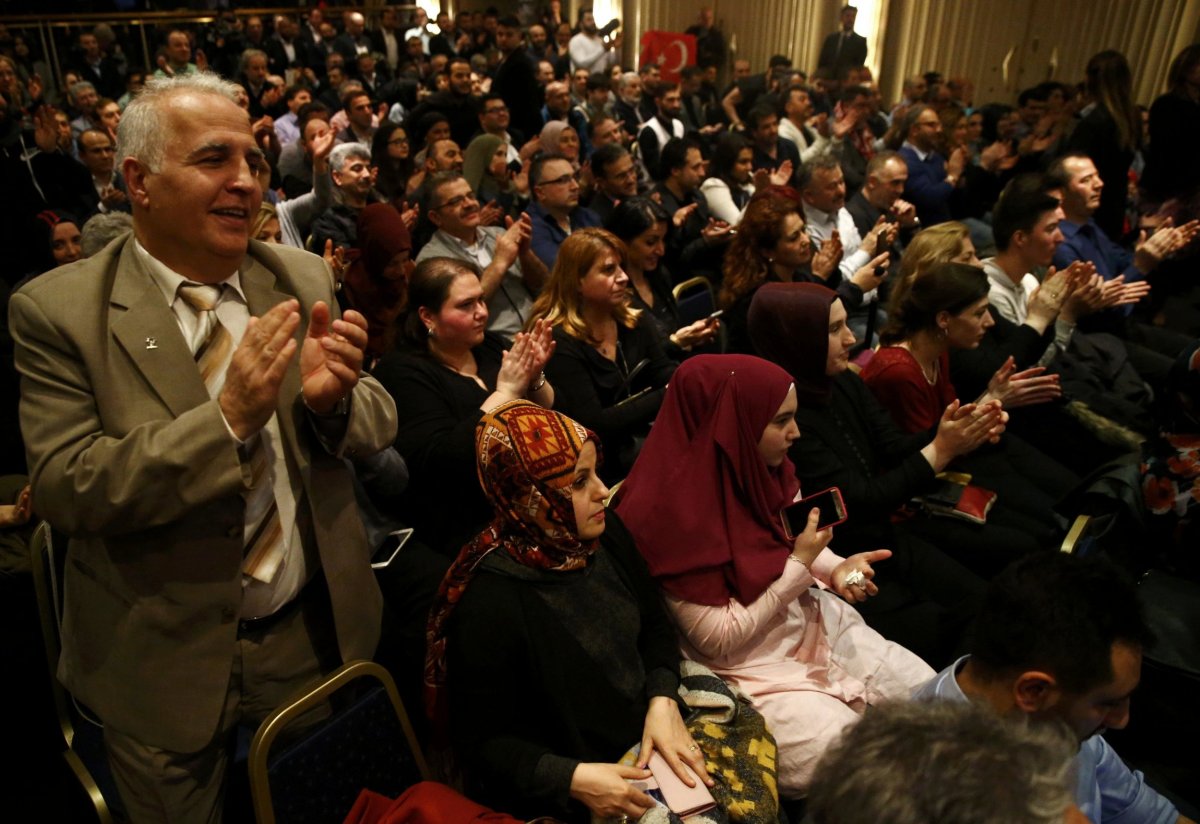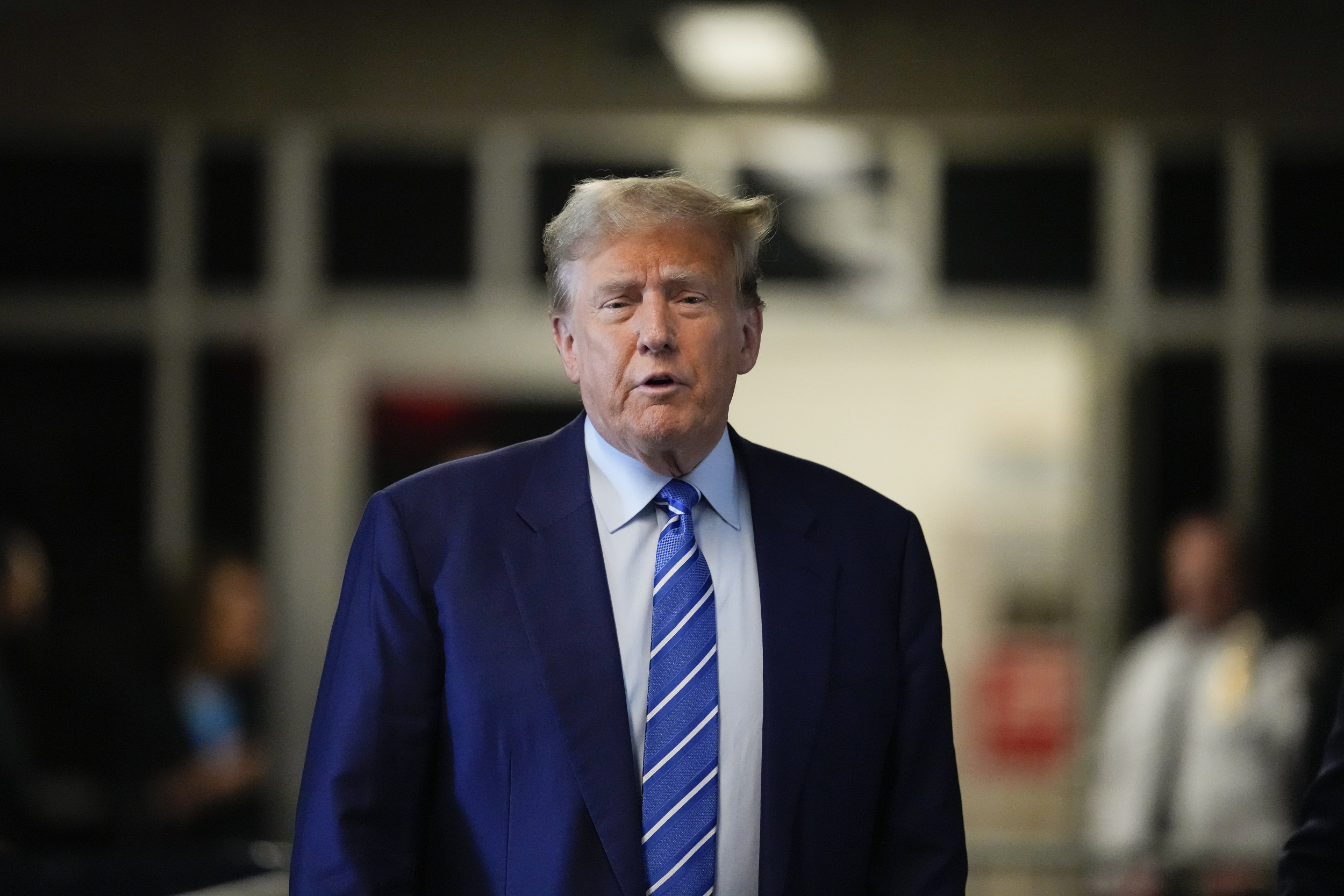
Turkish President Tayyip Erdogan accused Germany on Sunday of "fascist actions" reminiscent of Nazi times in a growing row over the cancellation of political rallies aimed at drumming up support for him among 1.5 million Turkish citizens in Germany.
German politicians reacted with shock and anger. German Justice Minister Heiko Maas told broadcaster ARD that Erdogan's comments were "absurd, disgraceful and outlandish" and designed to provoke a reaction from Berlin.
But he cautioned against banning Erdogan from visiting Germany or breaking off diplomatic ties, saying that such moves would push Ankara "straight into the arms of (Russian President Vladmir) Putin, which no one wants."
The deputy leader of Chancellor Angela Merkel's Christian Democratic Union (CDU) party said the Turkish president was "reacting like a wilful child that cannot have his way," while a top leader of the CDU's Bavarian sister party described Erdogan as the "despot of the Bosphorus" and demanded an apology.
German authorities withdrew permission last week for two rallies by Turkish citizens in German cities at which Turkish ministers were to urge a "Yes" vote in a referendum next month on granting Erdogan sweeping new presidential powers. Berlin says the rallies were canceled on security grounds.
However, Turkish Economy Minister Nihat Zeybekci spoke at large events in Leverkusen and Cologne on Sunday while protesters stood outside.
The row has further soured relations between the two NATO members amid mounting public outrage in Germany over the arrest in Turkey of a Turkish-German journalist. It has also spurred growing demands for Merkel to produce a more forceful response to Erdogan's words and actions.
A poll conducted for the Bild am Sonntag newspaper showed that 81 percent of Germans believe that Merkel's government has been too accommodating with Ankara. Germany, under an agreement signed last year, relies on Turkey to prevent a further flood of migrants from pouring into Europe.
Defiant Erdogan
The lead article in German news magazine Der Spiegel on Sunday urged Merkel to free herself from the "handcuffs of the migrant deal."
A defiant Erdogan said he could travel to Germany himself to rally support for the constitutional changes to grant him greater power.
"Germany, you have no relation whatsoever to democracy and you should know that your current actions are no different to those of the Nazi period," Erdogan said at a rally in Istanbul. "If I want to come to Germany, I will, and if you don't let me in through your doors, if you don't let me speak, then I will make the world rise to its feet," he told a separate event.
Neither Merkel's office nor the foreign ministry had any immediate comment.
Erdogan says he needs the proposed new powers to tackle Kurdish rebels, Islamist militants and other political enemies in a land with a history of unstable coalition governments.
Critics, meanwhile, argue that a "yes" vote in the April 16 referendum would abolish checks and balances that have already been eroded over 15 years of his rule.
Germany and other European countries have grown increasingly concerned about mass arrests and dismissals in the army, judiciary and civil service across Turkey after a failed attempt to topple the president in July.

'Islamo-fascist'
The remarks by Erdogan—a man admired by many for his rhetorical flourishes—could win support among those who see Turkey threatened by militant attacks and abandoned by putative allies, but they could damage economic ties at a time when Turkey faces rising unemployment and inflation.
Ten percent of Turkish exports go to Germany, while Germany accounts for about 11 percent of Turkish imports.
The confrontation has also fanned anger across the European Union, which Turkey had aspired to join but with increasingly subdued conviction of late.
Austrian Chancellor Christian Kern called for an EU-wide ban on campaign appearances by Turkish politicians to avoid member countries such as Germany coming under pressure from Ankara.
Dutch nationalist Geert Wilders, expected to make huge gains in a March 15 election, said on Sunday that he would declare "the whole cabinet of Turkey persona non grata" and described Erdogan an "Islamo-fascist."
Julia Kloeckner, deputy leader of Merkel's Christian Democratic Union, told Bild newspaper: "The Nazi comparison is a new high point of intemperance."
Andreas Scheuer, general secretary of the Bavarian CSU party, said that Erdogan's remarks marked a new low point in ties between the two allies and demanded an apology.
"This was a monstrous gaffe by the despot of the Bosphorus," Scheuer told the Passauer Neue Presse. "The Nazi comparison is outrageous and preposterous. An apology is in order."
Uncommon Knowledge
Newsweek is committed to challenging conventional wisdom and finding connections in the search for common ground.
Newsweek is committed to challenging conventional wisdom and finding connections in the search for common ground.
About the writer
To read how Newsweek uses AI as a newsroom tool, Click here.








